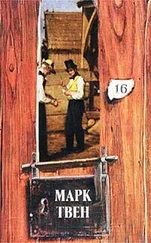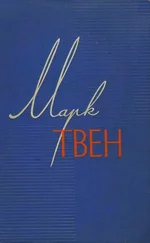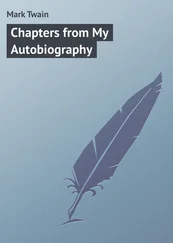Марк Твен - Is Shakespeare Dead? From My Autobiography
Здесь есть возможность читать онлайн «Марк Твен - Is Shakespeare Dead? From My Autobiography» — ознакомительный отрывок электронной книги совершенно бесплатно, а после прочтения отрывка купить полную версию. В некоторых случаях можно слушать аудио, скачать через торрент в формате fb2 и присутствует краткое содержание. Жанр: foreign_antique, foreign_prose, на английском языке. Описание произведения, (предисловие) а так же отзывы посетителей доступны на портале библиотеки ЛибКат.
- Название:Is Shakespeare Dead? From My Autobiography
- Автор:
- Жанр:
- Год:неизвестен
- ISBN:нет данных
- Рейтинг книги:4 / 5. Голосов: 1
-
Избранное:Добавить в избранное
- Отзывы:
-
Ваша оценка:
- 80
- 1
- 2
- 3
- 4
- 5
Is Shakespeare Dead? From My Autobiography: краткое содержание, описание и аннотация
Предлагаем к чтению аннотацию, описание, краткое содержание или предисловие (зависит от того, что написал сам автор книги «Is Shakespeare Dead? From My Autobiography»). Если вы не нашли необходимую информацию о книге — напишите в комментариях, мы постараемся отыскать её.
Is Shakespeare Dead? From My Autobiography — читать онлайн ознакомительный отрывок
Ниже представлен текст книги, разбитый по страницам. Система сохранения места последней прочитанной страницы, позволяет с удобством читать онлайн бесплатно книгу «Is Shakespeare Dead? From My Autobiography», без необходимости каждый раз заново искать на чём Вы остановились. Поставьте закладку, и сможете в любой момент перейти на страницу, на которой закончили чтение.
Интервал:
Закладка:
Then the thing happened which has happened to more persons than to me when principle and personal interest found themselves in opposition to each other and a choice had to be made: I let principle go, and went over to the other side. Not the entire way, but far enough to answer the requirements of the case. That is to say, I took this attitude, to wit: I only believed Bacon wrote Shakespeare, whereas I knew Shakespeare didn’t. Ealer was satisfied with that, and the war broke loose. Study, practice, experience in handling my end of the matter presently enabled me to take my new position almost seriously; a little bit later, utterly seriously; a little later still, lovingly, gratefully, devotedly; finally: fiercely, rabidly, uncompromisingly. After that, I was welded to my faith, I was theoretically ready to die for it, and I looked down with compassion not unmixed with scorn, upon everybody else’s faith that didn’t tally with mine. That faith, imposed upon me by self-interest in that ancient day, remains my faith to-day, and in it I find comfort, solace, peace, and never-failing joy. You see how curiously theological it is. The “rice Christian” of the Orient goes through the very same steps, when he is after rice and the missionary is after him ; he goes for rice, and remains to worship.
Ealer did a lot of our “reasoning” – not to say substantially all of it. The slaves of his cult have a passion for calling it by that large name. We others do not call our inductions and deductions and reductions by any name at all. They show for themselves, what they are, and we can with tranquil confidence leave the world to ennoble them with a title of its own choosing.
Now and then when Ealer had to stop to cough, I pulled my induction-talents together and hove the controversial lead myself: always getting eight feet, eight-and-a-half, often nine, sometimes even quarter-less-twain – as I believed; but always “no bottom,” as he said.
I got the best of him only once. I prepared myself. I wrote out a passage from Shakespeare – it may have been the very one I quoted a while ago, I don’t remember – and riddled it with his wild steamboatful interlardings. When an unrisky opportunity offered, one lovely summer day, when we had sounded and buoyed a tangled patch of crossings known as Hell’s Half Acre, and were aboard again and he had sneaked the Pennsylvania triumphantly through it without once scraping sand, and the A. T. Lacey had followed in our wake and got stuck, and he was feeling good, I showed it to him. It amused him. I asked him to fire it off: read it; read it, I diplomatically added, as only he could read dramatic poetry. The compliment touched him where he lived. He did read it; read it with surpassing fire and spirit; read it as it will never be read again; for he knew how to put the right music into those thunderous interlardings and make them seem a part of the text, make them sound as if they were bursting from Shakespeare’s own soul, each one of them a golden inspiration and not to be left out without damage to the massed and magnificent whole.
I waited a week, to let the incident fade; waited longer; waited until he brought up for reasonings and vituperation my pet position, my pet argument, the one which I was fondest of, the one which I prized far above all others in my ammunition-wagon, to wit: that Shakespeare couldn’t have written Shakespeare’s works, for the reason that the man who wrote them was limitlessly familiar with the laws, and the law-courts, and law-proceedings, and lawyer-talk, and lawyer-ways – and if Shakespeare was possessed of the infinitely-divided star-dust that constituted this vast wealth, how did he get it, and where , and when ?
“From books.”
From books! That was always the idea. I answered as my readings of the champions of my side of the great controversy had taught me to answer: that a man can’t handle glibly and easily and comfortably and successfully the argot of a trade at which he has not personally served. He will make mistakes; he will not, and cannot, get the trade-phrasings precisely and exactly right; and the moment he departs, by even a shade, from a common trade-form, the reader who has served that trade will know the writer hasn’t . Ealer would not be convinced; he said a man could learn how to correctly handle the subtleties and mysteries and free-masonries of any trade by careful reading and studying. But when I got him to read again the passage from Shakespeare with the interlardings, he perceived, himself, that books couldn’t teach a student a bewildering multitude of pilot-phrases so thoroughly and perfectly that he could talk them off in book and play or conversation and make no mistake that a pilot would not immediately discover. It was a triumph for me. He was silent awhile, and I knew what was happening: he was losing his temper. And I knew he would presently close the session with the same old argument that was always his stay and his support in time of need; the same old argument, the one I couldn’t answer – because I dasn’t: the argument that I was an ass, and better shut up. He delivered it, and I obeyed.
Oh, dear, how long ago it was – how pathetically long ago! And here am I, old, forsaken, forlorn and alone, arranging to get that argument out of somebody again.
When a man has a passion for Shakespeare, it goes without saying that he keeps company with other standard authors. Ealer always had several high-class books in the pilot-house, and he read the same ones over and over again, and did not care to change to newer and fresher ones. He played well on the flute, and greatly enjoyed hearing himself play. So did I. He had a notion that a flute would keep its health better if you took it apart when it was not standing a watch; and so, when it was not on duty it took its rest, disjointed, on the compass-shelf under the breast-board. When the Pennsylvania blew up and became a drifting rack-heap freighted with wounded and dying poor souls (my young brother Henry among them), pilot Brown had the watch below, and was probably asleep and never knew what killed him; but Ealer escaped unhurt. He and his pilot-house were shot up into the air; then they fell, and Ealer sank through the ragged cavern where the hurricane deck and the boiler deck had been, and landed in a nest of ruins on the main deck, on top of one of the unexploded boilers, where he lay prone in a fog of scalding and deadly steam. But not for long. He did not lose his head: long familiarity with danger had taught him to keep it, in any and all emergencies. He held his coat-lappels to his nose with one hand, to keep out the steam, and scrabbled around with the other till he found the joints of his flute, then he is took measures to save himself alive, and was successful. I was not on board. I had been put ashore in New Orleans by Captain Klinefelter. The reason – however, I have told all about it in the book called Old Times on the Mississippi , and it isn’t important anyway, it is so long ago.
CHAPTER II
When I was a Sunday-school scholar something more than sixty years ago, I became interested in Satan, and wanted to find out all I could about him. I began to ask questions, but my class-teacher, Mr. Barclay the stone-mason, was reluctant about answering them, it seemed to me. I was anxious to be praised for turning my thoughts to serious subjects when there wasn’t another boy in the village who could be hired to do such a thing. I was greatly interested in the incident of Eve and the serpent, and thought Eve’s calmness was perfectly noble. I asked Mr. Barclay if he had ever heard of another woman who, being approached by a serpent, would not excuse herself and break for the nearest timber. He did not answer my question, but rebuked me for inquiring into matters above my age and comprehension. I will say for Mr. Barclay that he was willing to tell me the facts of Satan’s history, but he stopped there: he wouldn’t allow any discussion of them.
Читать дальшеИнтервал:
Закладка:
Похожие книги на «Is Shakespeare Dead? From My Autobiography»
Представляем Вашему вниманию похожие книги на «Is Shakespeare Dead? From My Autobiography» списком для выбора. Мы отобрали схожую по названию и смыслу литературу в надежде предоставить читателям больше вариантов отыскать новые, интересные, ещё непрочитанные произведения.
Обсуждение, отзывы о книге «Is Shakespeare Dead? From My Autobiography» и просто собственные мнения читателей. Оставьте ваши комментарии, напишите, что Вы думаете о произведении, его смысле или главных героях. Укажите что конкретно понравилось, а что нет, и почему Вы так считаете.






